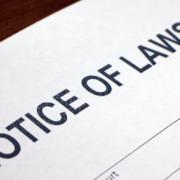Divorce attorneys must be very careful to avoid conflicts of interest when representing clients. Unfortunately, angry spouses in a divorce case sometimes use this issue to their advantage, effectively barring their spouse from working with an attorney with whom they have already shared their side of the story.
Learn why you may “conflict out” in a divorce case and how to proceed when your spouse uses this tactic against you.
What Does It Mean To “Conflict Out?”
“Conflicting out” is a tactic used to prevent a person from working with an attorney. When you call a divorce attorney’s office to inquire about hiring them, they will conduct a conflict check to ensure they have not had a conversation with your spouse.
Sometimes, in heated divorces, one spouse will call every divorce attorney in the area and set up a consultation with them. Even your spouse speaking with an attorney briefly about your divorce can bar you from working with them. Suddenly, you cannot work with attorneys in your area due to a conflict of interest.
Types of Conflicts That May Prevent You From Working With an Attorney
Many conflicts of interest can lead to disqualification in legal cases. Attorneys take confidentiality obligations seriously as part of their prospective client rules. If there is any barrier to confidentiality in your case, they won’t work with you.
Any of the following may also be a reason to conflict out:
- Your children know the attorney’s children
- Your spouse has been divorced before, and this attorney represented them
- Your attorney has a personal interest that interferes with their ability to represent you fairly
- Your attorney is concerned about any other “materially adverse interests”
Under an attorney’s rules of professional conduct, they will not accept any clients that may violate the confidential attorney-client relationship. This is why attorneys complete an initial conflict check process before you sign a retainer agreement.
What To Do If Your Spouse Has “Conflicted Out” Your Preferred Attorney
If you are concerned that your soon-to-be-ex-spouse will attempt to conflict you out, explain why this would not be wise. Preventing you from seeking good legal counsel will only prolong your divorce case. If you both have access to strong attorneys, you can finalize the divorce faster and move on with your lives.
But if your spouse has already used this tactic with an attorney you were interested in hiring, document their behavior. You won’t be able to work with your preferred attorney, but the attorney you end up with can use your spouse’s behavior to your advantage during the divorce. This may give you a leg up during the property division or child custody process.
The attorney you were hoping to work with can recommend other divorce attorneys in your area.
Schedule a Consultation With Karen Ann Ulmer, P.C., Today
Knowing why you may “conflict out” when hiring a divorce attorney can help you prepare for your spouse’s tactics. Contact Karen Ann Ulmer, P.C., today at (866) 349-4461 for help protecting your rights during the divorce.












